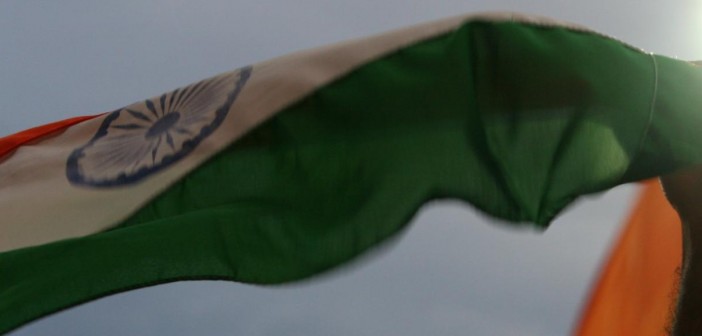In a speech to the Oxford Union, Dr Shashi Tharoor made the case for the United Kingdom to pay reparations to India, its former colony. Dr Tharoor’s speech was widely appreciated in India, and even Prime Minister Narendra Modi gave it his stamp of approval.
“Tharoor’s speech reflected the feelings of patriotic Indians on the issue, and showed what an impression one can leave with effective arguments, by saying the right things, at the right place” – Narendra Modi, Indian prime minister
India’s colonial era began in 1502, when in Kollam, the Portugeuse Empire established the first European trading centre. Through the marriage of Charles II of England to Princess Catherine of Portugal, the English crown gained possession of some Indian territories. This was the beginning of the English presence in India.
The spice trade would become the frontline of the colonial advance. In 1617, the Mughal emporer Jahangir gave the British East India Company permission to trade in India. As they increased their influence, the British East India Company was granted duty-free trade status in Bengal in 1717. The opposition of the local leader, Siraj ud Daulah, led to military confrontation with the British, in which the East India Company’s forces, named the Bengal Army defeated Nawab’s forces, which had been backed by the French. The key argument in Dr Tharoor’s speech concerned the economic toll that British rule took on India.
Quite simply, Dr Tharoor is wrong. I present a full rebuttal of his arguments – and explain how British rule actually had a positive effect on India.
We let ourselves be conquered
Dr Tharoor stated that the so-called ‘Clive of India’ treated the country as though Robert Clive himself was from the country, “when all he really did was to ensure that much of the country belonged to him”. Tharoor’s mistake is tantamount to severe historical whitewashing, forgetting about the deceit and treason of the native. How else could a nation of 100 million be conquered by so few? ‘Clive of India’ only succeeded because of the betrayal of our people, who are imbued with an intrinsic sense of treason. We were rotten, we who sold the allegiance of our Motherland for a trifle.
Before the British, India was a disunited mess
Tharoor claimed that by the fall of the 1800’s, “India was already Britain’s biggest cash cow”. Until 1947, the subcontinent was deeply separated. The British gave the subcontinent contiguity, and extending it beyond the Indus to the Durand Line, they left it an almost communicable subcontinent. Without the Raj, no-one would be able to unite the subcontinent; it was never ‘one’ the way it was once it became a federation after 1947. It was made up of about 680 ‘native states’, under hereditary rulers, the population kept subjugated into draconian systems and caste divisions. The empire lasted 200 years, and the Government of India acquired de facto and de jure control over the entirety of India. Thank the Raj. We were never ‘one’ before that.
The British liberated us from Nawabs
In 1857, there was no northern region, simply Indus and all of the lands owned by the hereditary Nawabs, in whose hands lay nearly all the wealth of the state. Without a central army that the Raj bequeathed to us, these Nawabs would have wreaked hell on the ordinary people of a balkanised subcontinent. The best thing to happen to the subcontinent was the disappearance of these 600-plus blood-sucking Nawabs.
Tharoor’s GDP argument is flawed
Dr. Tharoor made much of the fact that India’s share of the world economy seemed to fall under British rule. He claims that it was 23% at the start, and by the time the British left, it had been driven down below 4%. Tharoor claims that this is due to India being governed for the sole benefit of Britain. He completely missed the fact that India was (and remains) among the world’s most populated nations. Naturally, the GDP would consequently be high – but as the economy and productivity were very inefficient, the wealth was mostly concentrated in a few ruling hands. Furthermore, the share of world output was 23% when the world was an utterly agriculturally-based economy. India’s population was 120 million, and together with China, constituted 45% of the population of the known world, and 50.5% of its GDP. Without the Raj, we would be struggling with internecine wars, no language skills, and hugely divided land under the control of the Nawabs, with no railways making the continent one.
Without the Raj, India would have been pre-industrial
The subcontinent was lucky that as a result of the Raj we had an early rendezvous with the Industrial Revolution, fuelled by steam power. Otherwise, sans steam power, there would be no agricultural revolution, or scientific revolution. In the long run, the manual skill of the Indian artisan could be no substitute for technical progress.
India would be nowhere without the English language
If the Mughals had continued their unremitting rule of India without a proper education system introduced by the British, the overreliance on madrasas would ensure that downtown Bangalore would be a picture of day-after-day beheading, rather than India’s most important tech hub. The English language was brought by the Raj, and taught in schools and institutions as an official language in the country. They gave us the language that connected us to the world, and the long term benefits can still be seen today.
The Raj boosted India’s healthcare
An important point ignored by Dr Tharoor in the heat of the moment is overlooking the Raj’s contribution to healthcare. The control of campant diseases helped to reduce mortality rates. According to Angus Maddison, the British ensured that the death rate fell, allowing India’s population by 1947 to be more than two-and-a-half times that in 1757.
India’s agriculture was revolutionised
Tharoor made another huge omission in his speech by making no reference to the irrigation systems made by the Raj and the British that made the Punjab the granary of the subcontinent. This was the biggest gift of the Raj, with the others being the early introduction of the age of steam and industrialisation, and language. It’s no coincidence that Iran, Afghanistan and others have not seen their sons running Microsoft and top Fortune 500 countries. The Indus irrigation system is the world’s largest, and it consists of three major reservoirs, 18 barrages, 12 link canals, 25 irrigation canals, and over 107,000 water courses, with millions of farm channels and field ditches. The total length of the watercourses and field channels exceeds 1 million miles.
The railways, the postal service, every possible system that we enjoy today are the remnants of the Raj. The difference between India and North Waziristan in Pakistan for example, is the language and the versatility of connection. The largest man-made irrigation system is a gift of Raj engineering. Yes, excesses were committed, but the alternatives were not democratically elected leaders of India. A leap forward in science requires foresight, reason, and rationalism – these were the gifts that the Raj gave India.
Closing
We overlook the fact that we kept fighting over religion for hundreds of years, and kept our populace in chains and shackles as a result of an evil caste system. We ignore this, and find xenophobic slogans to detract from life in the slums, where men are denied the dignity of the living. What economy can prosper ‘when waging holy wars is the name of the game’? Some of the old fiefdoms and princely states used to spend up to 50% of their region’s GDP. Can you imagine how many times Delhi was looted and raped before the Raj? How could a nation come out of it? Had it not been for the systems that the Raj established, there would be no nation to speak of.





